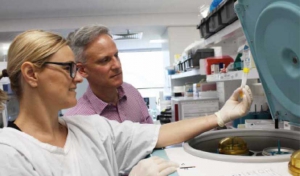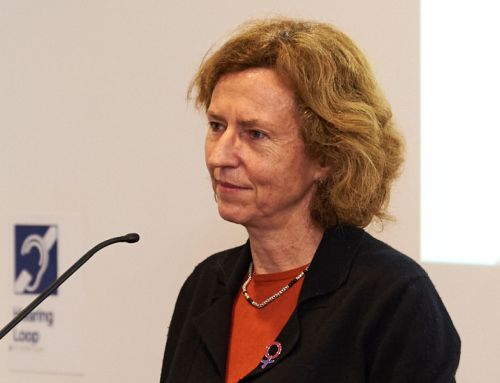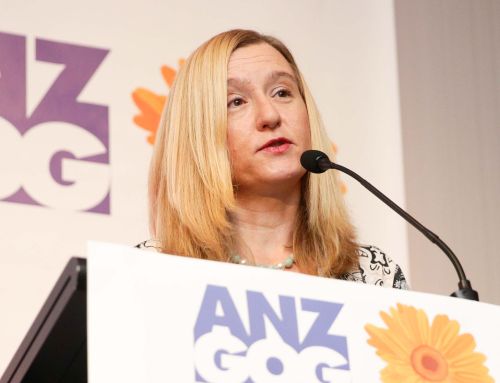Improving treatment practices in cervical cancer: EXCISE study
Dr Paul Cohen received funding to run a pilot study in cervical cancer through the ANZGOG Fund for New Research.
The study is called EXCISE and is comparing two treatments for removing (or excising) adenocarcinoma in situ (AIS) lesions from the cervix.
About the cancer
AIS is a precursor to a type of cervical cancer called adenocarcinoma. “Adenocarcinomas of the cervix account for about 15% of all cervical cancer, so they’re less common than squamous cell cervical cancers” said Dr Paul Cohen.
But AIS has a much higher risk of coexisting with an adenocarcinoma, “the progression from pre-cancer to cancer can be more rapid.”
It mostly affects younger women, and many of them want to retain their fertility. So the treatment for AIS is essentially conservative but it requires an excision of part of the cervix.
In Australia, the guidelines recommend cone biopsy (involving a scalpel) as the gold-standard, but in the UK a young woman is more likely to be treated with a loop electrical excision technique, and in the US practice may vary depending on location.
Both treatments are performed as day surgeries but the loop electrical excision doesn’t necessarily require an operating room or a general anaesthetic; and there is a suggestion that early, short-term complications and hospital readmissions are lower in women who are treated by the loop electrical excision. The concern is that the loop electrical excision may not be as effective at removing all of the precancerous cells as the cone biopsy.
“None of this is based on high quality data and I think there are potentially significant ramifications” said Dr Cohen.
More than a quarter of a million women die from cervical cancer every year, particularly in low-middle income countries that may not have screening and vaccination programs.
About the research
The pilot study will determine the feasibility of comparing the two treatments: cone biopsy or loop electrical excision, are whether they are equally effective in removing all of the precancerous cells. If that is found to be the case then Dr Cohen will progress with the full study.
The full study will compare the short- and long-term outcomes of each excisional procedure to determine if the treatments have similar outcomes – measured by persistent disease at 12 months and recurrent disease at five years.
“Women who have a cone biopsy are losing a significant proportion of their cervical length. That puts them at potential risk of either a second-trimester pregnancy loss in a subsequent pregnancy, or a pre-term birth and potentially very early pre-term birth. That is associated with a lot of morbidity, emotional cost, social cost, and potentially life-long disability for that child. Loop excision may carry a lower risk of these obstetric complications and I think it’s extremely important that we ask this question.”
So what if the loop electrical excision is found to be similar to the cone biopsy in the short-term, and also have lower risk of adverse obstetric outcomes?
“Then it will have enormous ramifications for health services globally, and for women, and for their partners and families, in terms of their future pregnancies. So I think it is a very important study” said Cohen.
The EXCISE pilot study has just recruited its first participant: the full study will need to recruit a little more than 800 women for its results to be relevant at the population level.
Around 900 women are diagnosed with AIS each year in Australia and New Zealand combined so Dr Cohen needs international partners to get timely results.
“If we’ve got multiple countries and recruiting centres then we can reach our recruitment targets and see results sooner.”
About Dr Cohen
Dr Cohen spends half his time in public practice as a Consultant Gynaecologist with the Western Australia Gynaecological Cancer Service at King Edward Memorial Hospital in Perth. The other half of his time is spent on research. Dr Cohen leads the Gynaecological Cancer Research Group at St John of God Subiaco Hospital and is also involved in teaching medical students and gynaecology specialists in training.
“In the clinic we are caregivers and it is very rewarding to communicate and help patients on an individual level. But research gives you the possibility of helping people in a different way and on a much larger scale.
If you are fortunate enough to be involved in a trial that leads to a positive outcome for women then you’re helping people you’ve never met and numbers of people you could never have imagined. That really inspires me.”
Find out more about the EXCISE trial, which was funded through ANZGOG’s Fund for New Research.












